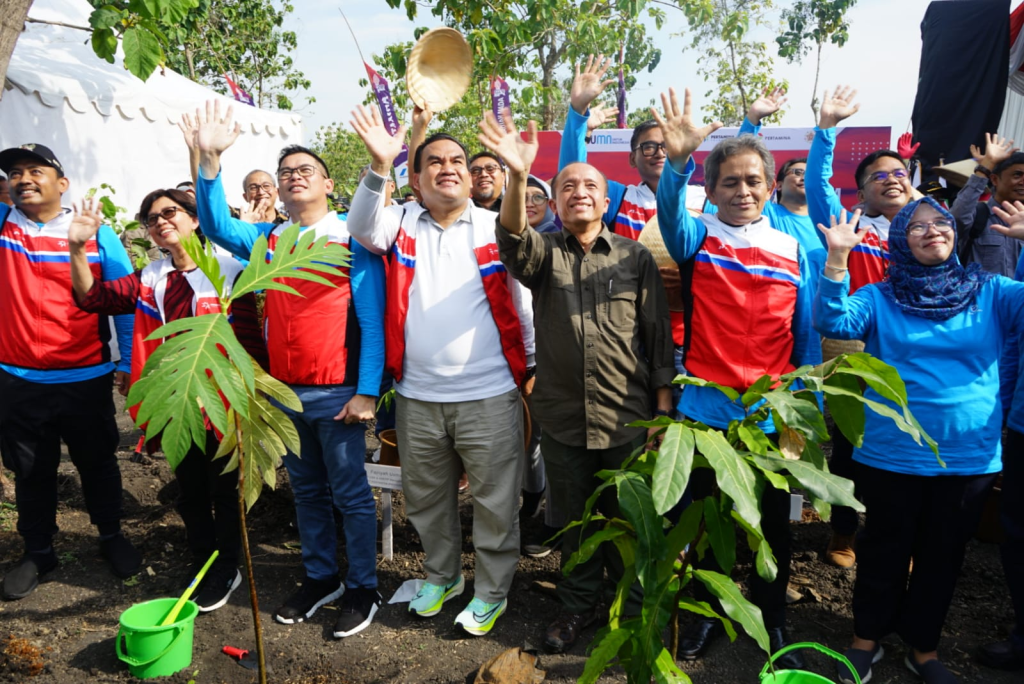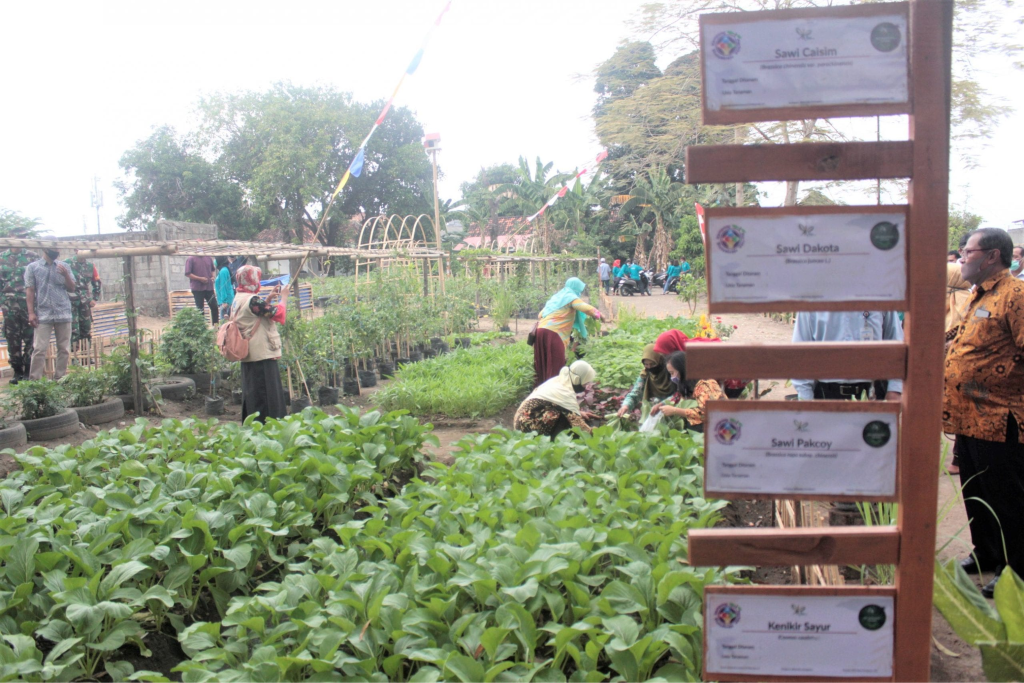Universitas Gadjah Mada (UGM) actively collaborates with local communities to maintain and enhance shared land ecosystems within its vicinity. These partnerships are evident through various activities and facilities.
UGM has managed the Getas-Ngandong Teaching Forest since 2016, a 10,867-hectare area spanning Blora and Ngawi Regencies. The university collaborates with local communities to develop sustainable land-use scenarios that balance ecological conservation with community needs. This approach ensures that forest management practices are inclusive and beneficial to both the environment and local residents. The Forest management is a result of a collaboration between Pertamina Foundation, UGM, and the Ministry of Environment and Forestry through the launching of Pertagama Forest in 2022.

The Agrotechnology Innovation Center (PIAT) at Universitas Gadjah Mada (UGM) actively leads agroforestry initiatives integrating tree planting with agricultural activities, fostering sustainable land use and addressing ecological and community needs. PIAT’s projects are designed to combine the cultivation of trees with crops and livestock in a way that enhances biodiversity and improves soil health, creating a balanced and productive ecosystem. A key activity involves partnerships with local farmers in surrounding areas, where PIAT provides training on agroforestry techniques, such as planting high-value multipurpose trees that contribute to soil fertility and water conservation. For example, farmers are introduced to nitrogen-fixing species, which reduce the reliance on chemical fertilisers, and native tree species that support local biodiversity while offering economic benefits like fruit or timber.
PIAT also focuses on research and demonstration plots within its managed lands, showcasing successful agroforestry models. These plots serve as a living laboratory for testing combinations of crops and trees suited to the region’s climate and soil conditions. Workshops and field visits are regularly organised, allowing farmers and community members to learn firsthand about sustainable practices and their long-term benefits.
Through these activities, PIAT not only supports sustainable agriculture but also empowers local communities with the knowledge and resources needed to adopt practices that benefit both the environment and their livelihoods. This collaborative approach underscores UGM’s commitment to advancing agroforestry as a solution for sustainable land management and biodiversity conservation.

